BY JON SHADEL
Tourism marketing supports entrepreneurship by attracting visitors to all corners of the state.
BY JON SHADEL
Tourism marketing supports entrepreneurship by attracting visitors to all corners of the state.
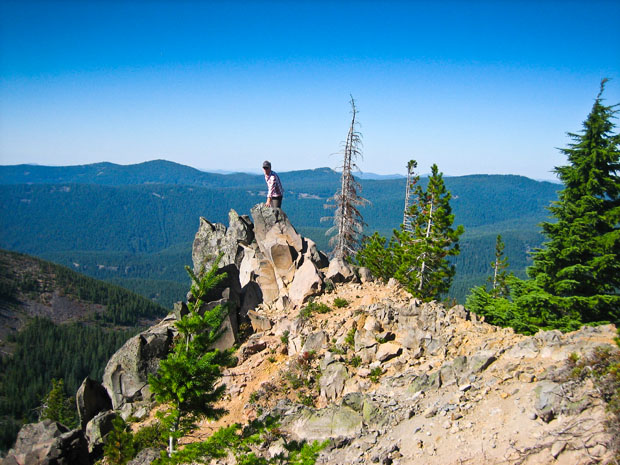
Tim Williams, executive director of Oregon Film, scouts filming locations at Crater Lake for Wild, a major motion picture that demonstrates the power of storytelling in marketing tourism destinations.
Laura Anderson peers out at Yaquina Bay through the floor-to-ceiling windows of her waterfront restaurant. In the early morning haze, she sees more than a hundred fishing boats bobbing in the water, soon to bring the bounty of the Pacific Ocean to shore. She pauses for a moment to consider the journey of the food she serves, fresh from the open ocean to the sizzling grill in her kitchen.
In the course of a day, Anderson will come in contact with many local fishermen. She’ll purchase their catch — king salmon, albacore tuna and Dungeness crab, to name a few — fresh off the docks to serve at Local Ocean Seafoods, a grill and fish market in Newport that prides itself on serving fish caught on boats that can be seen from its bay-front windows.
While Local Ocean’s fresh fare has received much acclaim from food critics and locals alike, what keeps travelers coming back is a dining experience that brings them closer to the natural source of seafood.
“We are a showcase for local fisheries,” says Anderson. “When people dine here, they can walk right up to the pier where a local boat recently brought fish to shore, then they can sit down for dinner to eat that same fresh fish,” she continues, explaining that every fish sold in Local Ocean’s market is labeled with the name of the boat that caught it. “Diners might even sit down next to the very fishermen who caught their entrée.”
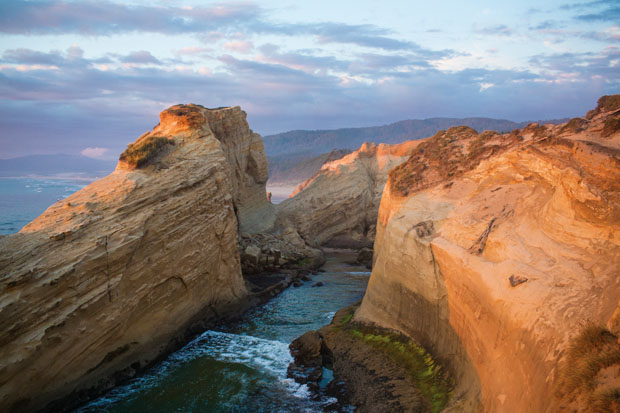
The entire 363 miles of the Oregon Coast is one of the “7 Wonders of Oregon,” a series of short films produced by Travel Oregon to market the state by portraying its boundless beauty in a narrative context.
Similar to farm-to-table restaurants, Local Ocean is a prime example of the type of authentic experience many travelers crave. But the restaurant also demonstrates the economic benefits of tourism marketing in the form of storytelling.
In Oregon, storytelling is more than a marketing buzzword. Whether it’s telling the story of food, the journey of entrepreneurs or showcasing the imaginative potential of the state’s natural beauty, this kind of tourism marketing is causing tangible economic impact and attracting tourists to the state who support local business ventures.
For example, Anderson’s sustainable cuisine has been a big hit in its own right, but she emphasizes that her business’s success is largely driven by tourism to the coast. “All of us in the service industry on the coast are reliant on tourism, and marketing Oregon as a destination clearly contributes to that,” Anderson adds. “It’s certainly how we’ve been able to sustain the kind of sales we’ve seen over the last ten years.”
Anderson’s entrepreneurial journey is just one of many such stories published in BuiltOregon, a new digital magazine profiling entrepreneurs and identifying what inspires them to start their businesses. Launched in 2014, cofounders Mitch Daugherty and Rick Turoczy set out to chart the journeys of founders in all corners of the state. But in doing so, they’ve been noticing many connections between storytelling, tourism and economic development.
“The role of tourism marketing in the picture is something we’re still trying to figure out,” admits Daugherty, “but we’ve clearly seen how telling stories of Oregon creates a sense of place that pulls people here. It’s a unique lifestyle that people identify with.” He cites examples of businesses across the state — from a vibrant microbrewery scene in Bend to wine tours in the Willamette Valley — that have benefited from the steady stream of tourists injecting $10.3 billion into the economy each year.
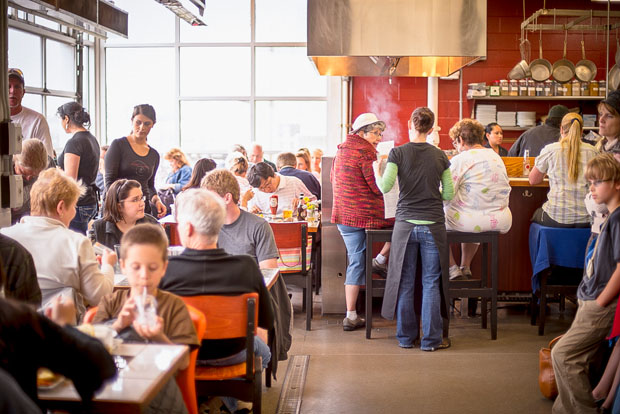
Local Ocean Seafoods in Newport has seen tremendous success due to the fresh experience they give guests and the success of marketing the coast as a destination.
But the impact of storytelling for these businesses goes beyond raising the profile of the state and attracting visitors. It has also built a platform for small ventures like Local Ocean, creating what might be referred to as a feedback loop where tourism marketing generates revenue to support such businesses to the point where they become tourist destinations in their own right.
Turoczy has seen how marketing the state and telling the stories of these businesses has helped build brand awareness for Oregon across the country. “A few years ago, people would look at Oregon and ask why anyone would want to start a business here,” says Turoczy. “But that’s changed drastically to people saying, ‘Oh, I’ve heard a lot about Oregon. I really need to come visit,’ or ‘I’ve visited a few times, and I really want to start a business there.’”
Daugherty and Turoczy see BuiltOregon as one more opportunity to raise the profile of entrepreneurs and continue to answer the question, “Why Oregon?” But they know they can’t do it alone. “It takes different groups coming together to raise visibility,” Turoczy admits, “and we’re just one voice for these kinds of stories.”
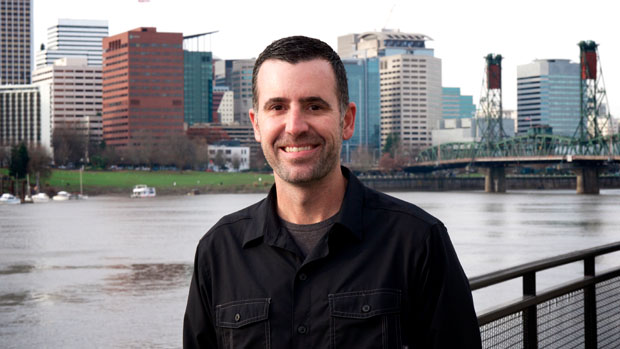
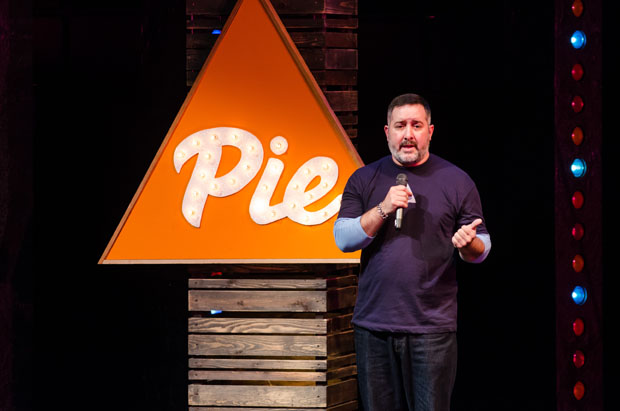
Mitch Daugherty (left) and Rick Turoczy, cofounders of BuiltOregon.
Tim Williams is another such spokesperson. Williams serves as executive director for the Oregon Governor’s Office of Film & Television where he advocates and markets the state as a media destination. In his long career as an executive and independent producer, he has worked extensively in Los Angeles and New York City, but he became familiar with Oregon’s media activity when working for Fox Searchlight on preparation for Wild, the film adaption of Portland author Cheryl Strayed’s bestselling memoir.
Williams has seen how marketing campaigns like “7 Wonders of Oregon” show the imaginative potential of place and demonstrate the importance of stories in marketing destinations. “If you look at the ‘7 Wonders’ campaign, it’s really a series of short films telling stories. You watch them, and you feel an emotional pull,” he explains. “It’s like the films say, ‘Insert yourself here.’”
Williams admits that this talk of storytelling may sound fuzzy to some, but he says the tangible impact of storytelling is rooted in the reason so many choose to travel to specific destinations. “Why do we go anywhere? It’s because we’ve seen or heard something interesting about that place — a story,” he says, indicating that the medium doesn’t matter — it could be a book, a film or a marketing campaign — but what’s clear is that the idea of a story permeates through the traveler’s psyche.
“When we travel, some would say we’re in search of new frontiers. But I’d say we’re in search of a new story, imprinting our own experiences onto the things we’ve been told of a particular place,” Williams adds. “And here in Oregon, these connections demonstrate the power of storytelling.” n





